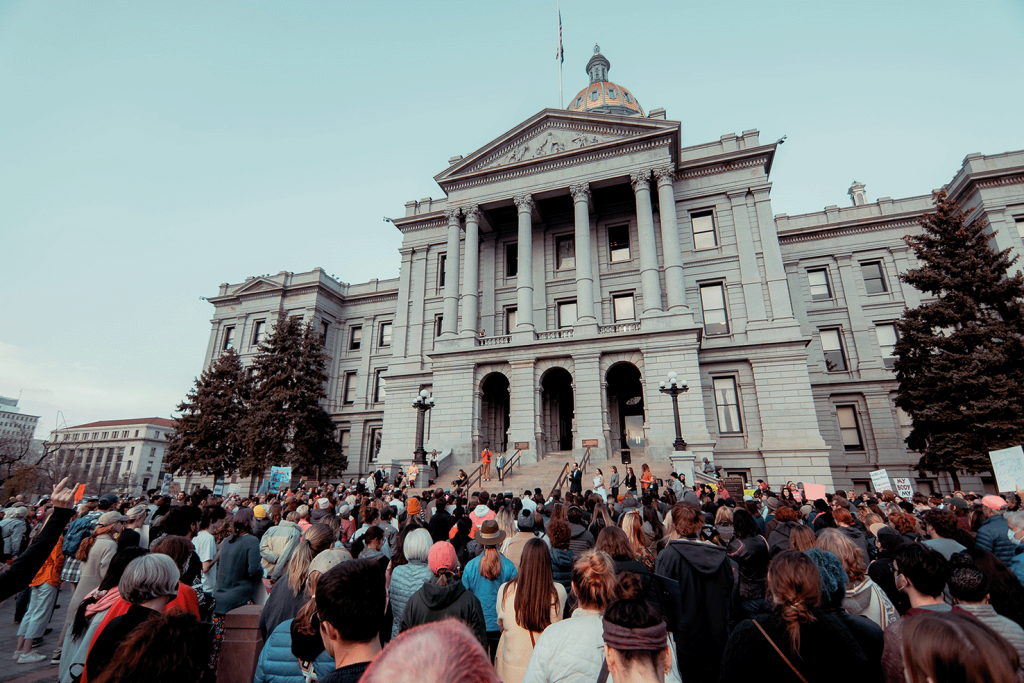The World Without “Roe”
Share this story

Roe v. Wade was a decision made on January 22, 1973 that would impact the rights of women for the next fifty years. Norma McCorvey, known to the public as Jane Roe, sued the state of Texas in 1969 for the right to have an abortion, it not being legal at the time. Winning her case with Texas and having the case continue in front of the Supreme Court, Roe v. Wade was ruled to protect the bodily autonomy of women. This meant each state had to make abortion legal in some capacity, as it was a woman’s right to choose what to do with her body.
In recent years the decision–and the legal precedent it established–has been attacked, with states pushing back against the case. Texas recently passed a “heartbeat law,” making abortion illegal once the fetus has a heartbeat at around four weeks after conception. Others make abortion completely illegal except for cases of incest, rape, or ectopic pregnancies. Certain states have begun making laws for those who have miscarriages or ectopic pregnancies to be criminally prosecuted, facing manslaughter or homicide charges. Ectopic pregnancies are nonviable from conception, a fetus growing outside of the womb in a hostile environment. These conceptions must be terminated for the risk of the mother dying, as there is no way for both the mother and the fetus to survive until full term. Legislature and doctors go at odds in defining what is a viable pregnancy as well as when abortion should no longer be allowed. Unless actively watching, most women will not experience symptoms of a pregnancy until 12-14 weeks, passing the cap some states have on abortion.
Protesters have taken to the streets across the country, rallying in front of government buildings, hoping the public opinion may sway the decision to overturn Roe v. Wade. Celebrities have also stepped forward, speaking on the impact of what overturning the constitutional law would mean for many young women. James Cordon, a talkshow host of the Late Late Show spoke on the possible overturning of Roe v. Wade, “It’s mystifying, it’s baffling. For the past two years, we’ve seen people crying out for ‘medical autonomy,’ from pushback on mask mandates, to anti-vaccination protests. And yet now, some of the most vocal opponents of ‘government interference in medical care are supporting a decision that says, ‘your body, my choice’.”
While Roe v. Wade seems to only impact adults, teenagers are feeling the heat of the possible overturning. Many young girls have come forward with their fear of lack of healthcare as sexual assault numbers have continued to rise. With a lack of consent or coercion now playing a role in hookups or relationships, Roe v. Wade protects a woman’s right not just to abortion, but to privacy as well. Mara Schnoes, a junior at WHS spoke on a women’s right to protection, “As a female in today’s society, I would just like to point out that we are more susceptible to rape, leading to unwanted pregnancies… if Roe v. Wade is overturned, women that get pregnant from rape will be forced to keep the baby.”
No matter the view in regards to unwanted pregnancies, ectopic pregnancies, or pregnancies from rape, women should have the right to bodily autonomy. Roe v. Wade protects not only a women’s right to choose but also gives someone the right to privacy as well as protection over other medical procedures. It matters not a person’s view on why something is wrong or right, keeping abortion legal will keep it safe- that should be the only concern at the end of the day.

